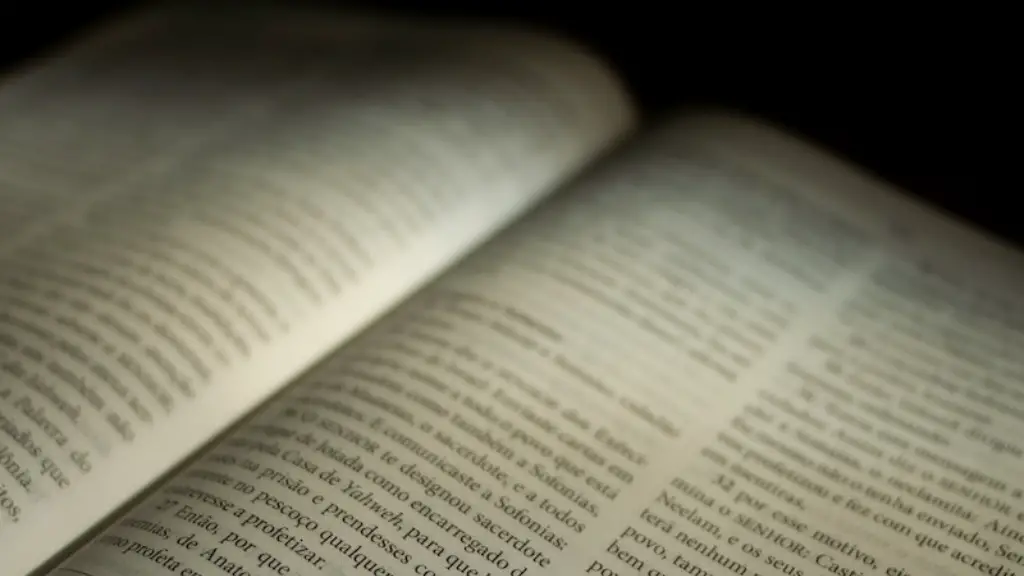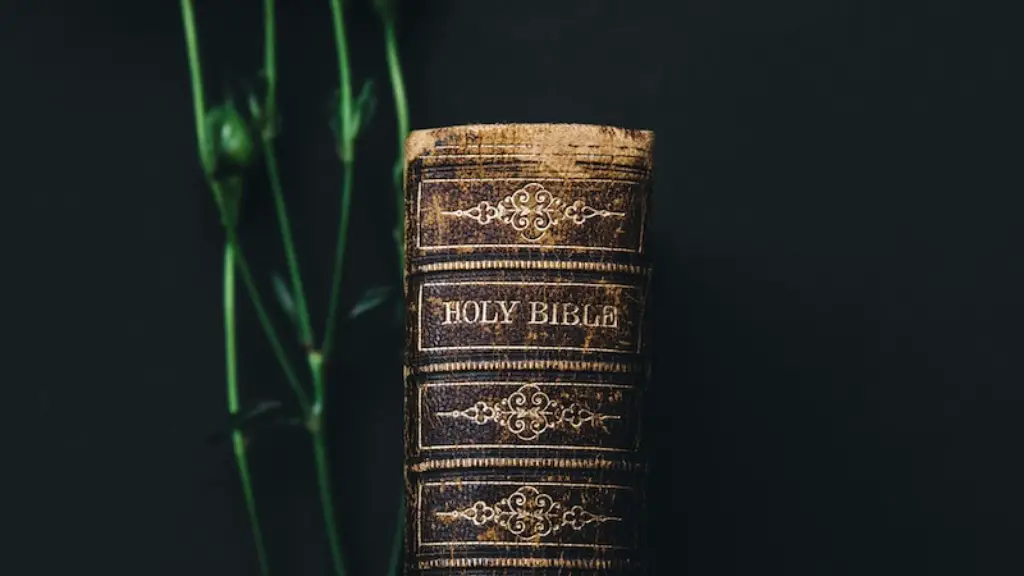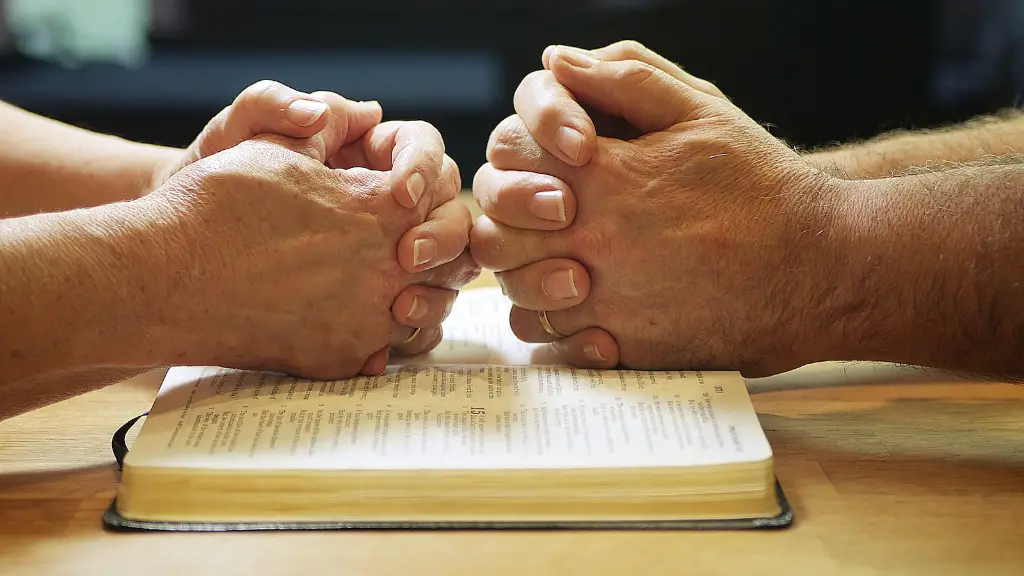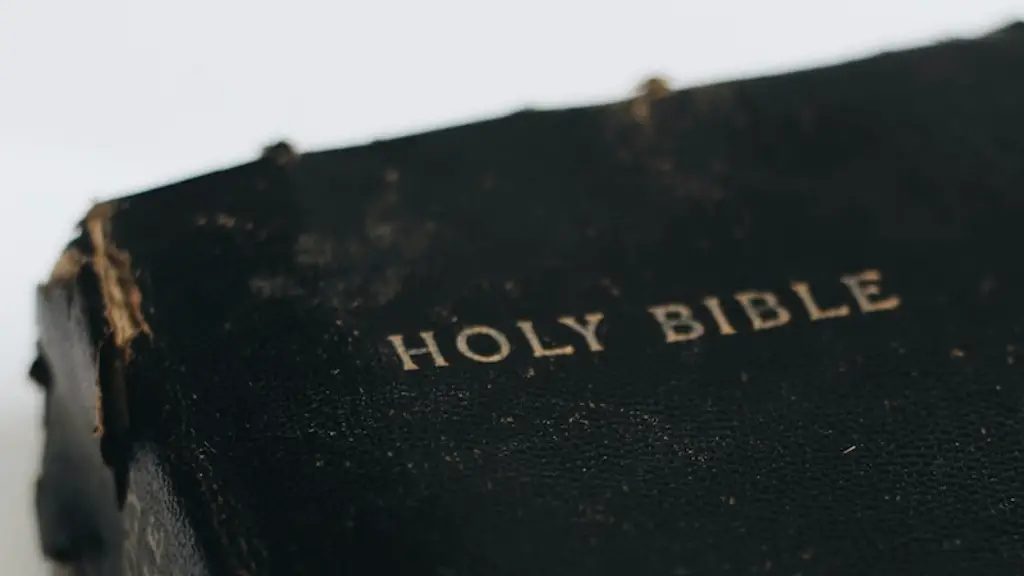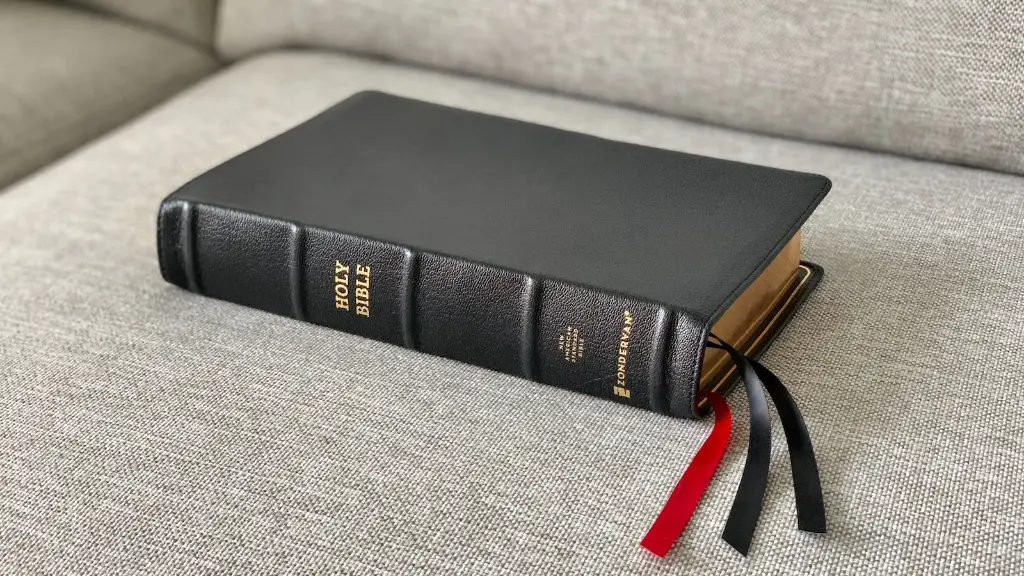The Bible does not specifically mention tarot cards, however, it does mention the use of divination, which is defined as the practice of seeking knowledge of the future or the unknown by supernatural means. Therefore, tarot cards would fall under the category of divination. The Bible speaks against divination in many verses, including Leviticus 19:26, Deuteronomy 18:10-12, Isaiah 8:19, and Revelations 21:8. While some people believe that tarot cards can be used in a harmless way for entertainment purposes, the Bible does not support the use of tarot cards or any other form of divination.
There is no mention of tarot cards in the Bible, so we cannot say definitively what the Bible says about them. However, some Christians believe that tarot cards are associated with the occult and are therefore discouraged.
What religion do tarot cards originate from?
There is a lot of debate surrounding the origins of tarot cards. Some believe that they originated from ancient Jewish mystical practices, while others believe that they originated in China or Egypt. However, the most likely origin of tarot cards is Italy in the 14th century.
The passage from Deuteronomy 18:10-11 clearly condemns the practice of divination and witchcraft, as well as consulting with familiar spirits. These are all practices that are associated with paganism and idolatry, and are therefore strictly forbidden for the people of Israel. This passage serves as a reminder that we are to put our trust in God alone, and not in any supernatural or occult practices.
Who created the meaning of tarot cards
It wasn’t until the 18th century that a Frenchman named Jean-Baptiste Alliette wrote a book linking tarot cards to divination. He assigned meaning to each card, leaning on astronomy and the elements, as well as taking inspiration from the Egyptian Book of Thoth. Alliette’s work helped to popularize tarot cards as a tool for divination, and his book remains an important text on the subject to this day.
The original purpose of tarot cards was to play games. The earliest known mention of the use of tarot cards for divination comes from a book published in Milan in 1491. In the book, which is entitled, “The Oracles of Francesco Marcolino da Forli,” the author, who is a friar, gives a very cursory explanation of the rules for a tarot-like deck. He says that the cards can be used for “divination and for game-playing.”
Does astrology go against the Bible?
The Bible does not expressly forbid people from trusting astrology, but it does warn against specific people’s sins. The western world has many astrologers, who claim that the Bible has been misconstrued. They believe that it is possible to use astrology to help people avoid specific sin.
The Catholic Church has long condemned the practice of necromancy, which is the conjuring of demons who take the appearance of spirits. This practice, also known as maleficium, is seen as a grave threat to the souls of those who engage in it.
What is a soothsayer in the Bible?
A soothsayer is someone who claims to foretell events. Soothsaying is the act of predicting future events.
I agree with Howe that anyone can read tarot, regardless of how the deck is acquired. I think the exclusive practices and rules are unnecessary, and I think anyone who wants to read tarot should be able to do so.
Who first read tarot cards
Etteilla is considered to be the first person to assign divinatory meanings to the tarot cards. In 1783, he published a book titled “Manuel du cartomancie” which outlined his system of using the tarot for divination. According to Etteilla, the tarot could be used to discover hidden knowledge and wisdom, and to understand the past, present, and future.
The tarot is an ancient tool of divination, and its origins are unknown. The tarot is traditionally composed of 78 cards, divided into two groups: the major arcana and the minor arcana. The major arcana are 22 cards that represent the archetypes of human experience, while the minor arcana are 56 cards that represent the forces that influence our everyday lives.
The aim of a tarot reading is to explore a question about the self. You pick cards to help you reflect on possible answers, interpreting the meaning of each in relation to what you asked. Keep in mind that tarot cards are tools for introspection, and for that reason it’s best to keep questions open-ended.
The tarot can be a helpful tool for exploring the self, but it’s important to remember that the cards are only a tool and that the real work of introspection must be done by the individual.
What does the Bible say about signs?
The Hebrew word for sign is ‘ot. This word is used in the Old Testament to refer to a warning sign, a divine judgement, or a deliverance from oppression. For example, the signs given to Israel during their Exodus from Egypt served to warn them of danger, guide them to safety, and mark the sacred time of their deliverance.
With the story of the birth of Christ coinciding with this date, many Christian symbols for Christ use the astrological symbol for Pisces, the fishes. The figure Christ himself bears many of the temperaments and personality traits of a Pisces, and is thus considered an archetype of the Piscean. Christ is often depicted as a peaceful and calm figure, with a great capacity for empathy and compassion. He is also seen as someone who is able to bring about change and healing, both on an individual and a global level. In many ways, Christ embodies the best of what Pisces have to offer, and is a powerful symbol of hope and possibility for all of us.
What religion believes in zodiac signs
Taoism is one of the religions that has influenced the zodiac. In Taoist beliefs, they use constellations and space to determine a person’s “future”. This applies to the zodiac because in Chinese astrology, they believe that the positions of the things in space can affect a person’s destiny.
The Witch of Endor is a female sorcerer who appears in the Old Testament. She is visited by Saul, the first king of Israel. The Witch is said to have the ability to summon the spirit of the dead, and she uses this power to bring up the spirit of Saul’s dead son, Samuel. This causes Saul to realize that he is destined to lose the upcoming battle against the Philistines, and he subsequently dies.
Who went to see a witch in the Bible?
In 1 Samuel 28, we see Saul searching for a witch in the village of Endor. He disguises himself and crosses through enemy lines to visit her, asking her to raise Samuel from the dead. This act is a clear violation of God’s law, which strictly forbids necromancy and magic (Deuteronomy 18:10-11). As a result, Saul incurs God’s judgement and is ultimately killed in battle.
The behemoth is a giant, primeval creature that appears in the biblical Book of Job. In Jewish tradition, the behemoth is paired with the other chaos-monster, Leviathan, and both are said to become food for the righteous at the end of days.
What is the name of the witch in the Bible
The Witch of Endor is a powerful image that has appeared in various forms in art, literature, and even popular culture. This prophet’s spirit offered no advice regarding the best course of action against the assembled forces of the Philistines, but did accurately predict Saul’s ruination. So potent is the imagery of the Witch of Endor and her taboo power that it continues to be a source of fascination for many people.
This is a commandment from the Lord that His people are not to eat anything with its blood, practise augury or witchcraft, round off the hair on their temples or mar the edges of their beard, or make any gashes in their flesh for the dead or tattoo any marks upon them.
Conclusion
There is no direct mention of tarrot cards in the Bible, so we must use our best judgment when considering their use. Some Christians may see tarot cards as a form of divination and consider them to be practices that are associated with the occult. However, others may view them as simply a tool for exploring different aspects of the human condition and our spiritual journey. Whatever our personal beliefs, we should always be cautious about anything that could potentially lead us away from God.
The Bible does not say anything about tarrot cards specifically. However, it does warn against divination in general. Divination is defined as the practice of seeking knowledge of the future or the unknown by supernatural means. In the Bible, divination is associated with false gods and is therefore an abomination to God. Therefore, Christians should avoid tarrot cards and any other form of divination.
